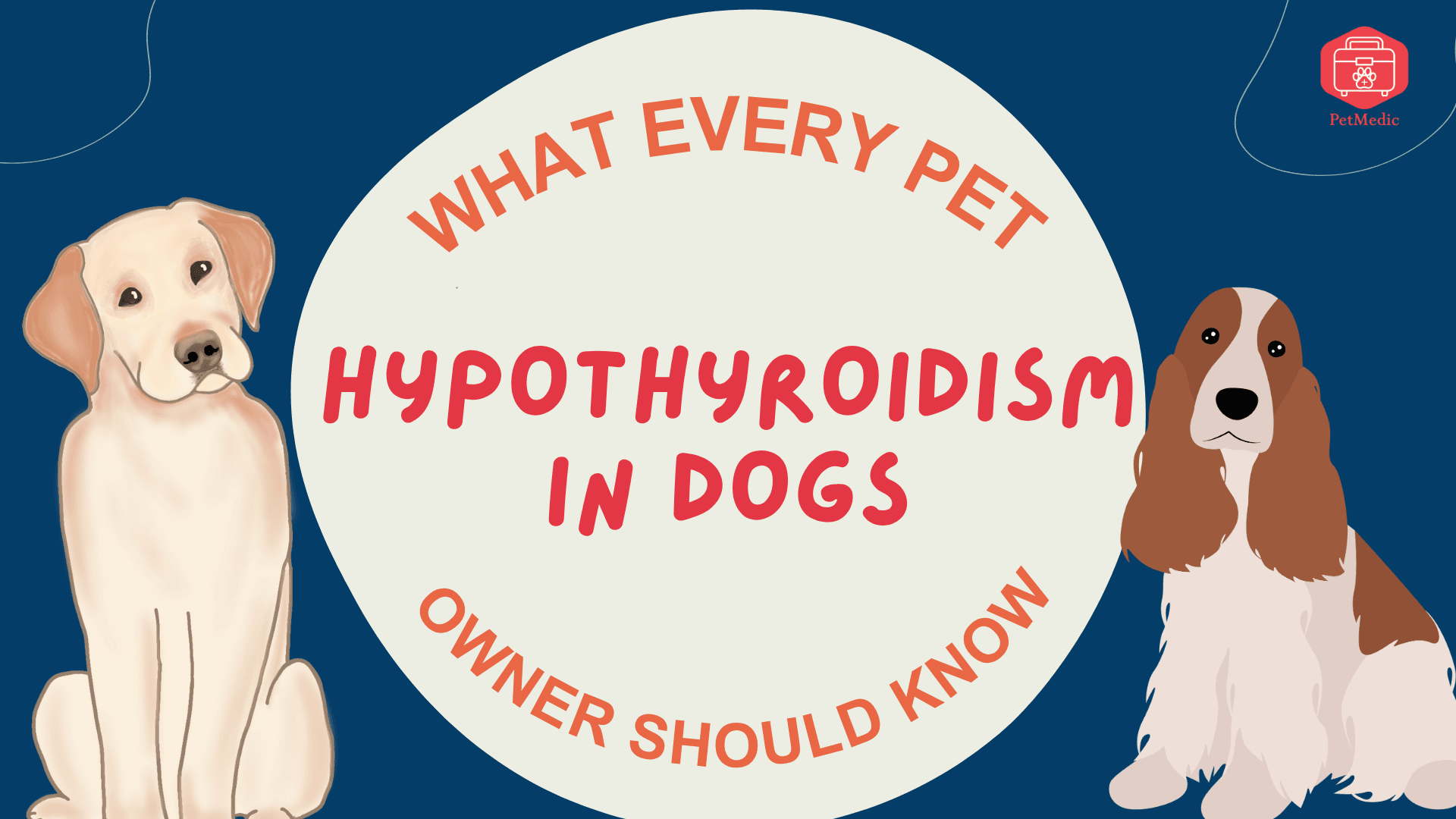
Blog
Hypothyroidism in Dogs — What Every Pet Owner Should Know

Hypothyroidism is a common hormonal disorder in middle-aged dogs, where the thyroid gland doesn’t produce enough thyroid hormones. These hormones help regulate your dog’s metabolism — so when they’re too low, your dog may start to feel sluggish, gain weight, and show skin problems.
The good news? It’s easily treatable with daily medication, and most dogs go on to live normal, happy lives.
What Is the Thyroid Gland?
The thyroid gland is a small organ located in your dog’s neck. It produces hormones (like T4 and T3) that affect nearly every organ in the body — from how fast they burn energy to how the skin, heart, and brain function.
Who’s at Risk?
- Most common in medium to large breed dogs, aged 4–10 years
- Golden Retrievers, Dobermans, Labradors, and Cocker Spaniels are more at risk
- Very rare in cats (cats are more prone to hyperthyroidism, which is the opposite)
Signs of Hypothyroidism in Dogs
Symptoms can appear slowly and be easy to miss at first. Watch for:
- Low energy or sleeping more than usual
- Weight gain despite a normal or reduced appetite
- Hair thinning or hair loss, especially on the tail and body
- Dry, flaky skin or frequent skin infections
- Cold intolerance (your dog seeks warm spots)
- Slow heart rate
- In some dogs: reproductive problems or behavioral changes
How Is It Diagnosed?
Your vet will likely recommend:
- Blood tests to measure thyroid hormone levels (especially T4)
- If needed, more advanced tests like free T4 by equilibrium dialysis or TSH stimulation test for confirmation
How Is It Treated?
Treatment is simple and lifelong:
- A daily thyroid hormone tablet (levothyroxine)
- Regular check-ups and blood monitoring to adjust the dosage
Most dogs start feeling better within a few weeks of starting treatment.
What Happens If It’s Not Treated?
Untreated hypothyroidism can cause:
- Ongoing weight gain
- Chronic skin infections
- Lethargy
- In some cases, nerve or heart problems
That’s why early detection and consistent treatment are so important.
Vet’s Tip:
Hypothyroidism can look like just ‘getting older’ — but if your dog is gaining weight, slowing down, or losing hair, don’t ignore it. A simple blood test can give us answers and help your dog feel like themselves again.
